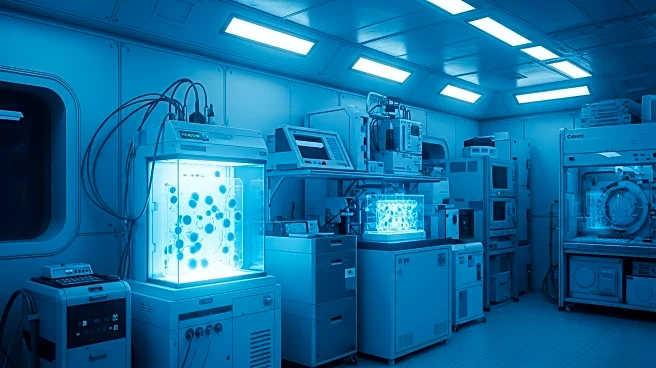What is the story about?
What's Happening?
A recent study published in the journal Cell Stem Cell reveals that human stem cells age more rapidly in space, specifically aboard the International Space Station (ISS). The research focused on hematopoietic stem and progenitor cells (HSPCs), which are crucial for blood and immune system health. These cells exhibited signs of accelerated aging, including DNA damage and reduced ability to produce healthy new cells, after exposure to spaceflight conditions. The study, led by Jessica Pham from the University of California San Diego, attributes these changes to radiation and microgravity. The findings are part of ongoing research into the effects of spaceflight on human health, including NASA's Twins Study, which examined identical twins Scott and Mark Kelly, with Scott spending nearly a year in space.
Why It's Important?
The accelerated aging of stem cells in space has significant implications for long-duration space missions, such as those planned for Mars. Understanding these changes is crucial for developing protective measures for astronauts and could also provide insights into human aging and diseases like cancer on Earth. The study highlights the resilience of the human body to spaceflight conditions, with most gene expression levels returning to normal post-mission. However, the research underscores the need for further investigation into the long-term health impacts of space travel, particularly concerning telomere dynamics and molecular changes.
What's Next?
The University of California San Diego plans to continue its research with more ISS missions focused on HSPCs. Future studies will include real-time monitoring of molecular changes and the development of countermeasures to mitigate the effects of spaceflight on human health. These efforts aim to enhance the safety and success of future long-duration missions, potentially informing strategies for human exploration of Mars and beyond.














